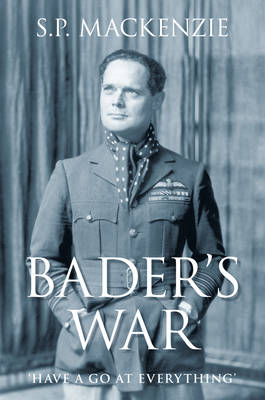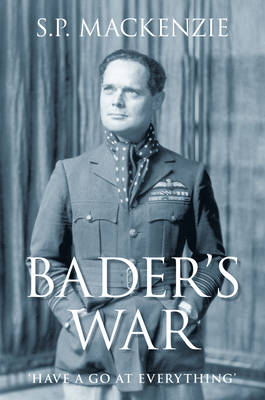
- Afhalen na 1 uur in een winkel met voorraad
- Gratis thuislevering in België vanaf € 30
- Ruim aanbod met 7 miljoen producten
- Afhalen na 1 uur in een winkel met voorraad
- Gratis thuislevering in België vanaf € 30
- Ruim aanbod met 7 miljoen producten
Zoeken
Omschrijving
A quarter of a century after his death, Douglas Bader remains the most famous fighter pilot that Britain has ever known. He lost both of his legs in a flying accident in 1931, but overcame his disability and returned to the RAF in 1939 to command the Canadian Fighter Squadron during the Battle of Britain. Held as a prisoner of war at several German camps--including the infamous Colditz Castle--he made numerous escape attempts, becoming such an aggravation that his captors were forced to confiscate his tin legs. Such was his fame on his return to England that his autobiography sold 100,000 copies upon publication, and the hugely successful film about his life--Reach for the Sky--further popularized his legend. While he had as many flaws as laudable qualities, Bader undeniably achieved great things, both during the Second World War and in his later work for disabled charities. This study makes use of new memoirs, interviews, and documents that have only recently become available to shed further light on various episodes in his life and provide an unbiased portrayal of this fascinating man.
Specificaties
Betrokkenen
- Auteur(s):
- Uitgeverij:
Inhoud
- Aantal bladzijden:
- 192
- Taal:
- Engels
Eigenschappen
- Productcode (EAN):
- 9781862274679
- Verschijningsdatum:
- 1/12/2008
- Uitvoering:
- Hardcover
- Formaat:
- Genaaid
- Afmetingen:
- 165 mm x 241 mm
- Gewicht:
- 471 g

Alleen bij Standaard Boekhandel
+ 55 punten op je klantenkaart van Standaard Boekhandel
Beoordelingen
We publiceren alleen reviews die voldoen aan de voorwaarden voor reviews. Bekijk onze voorwaarden voor reviews.











